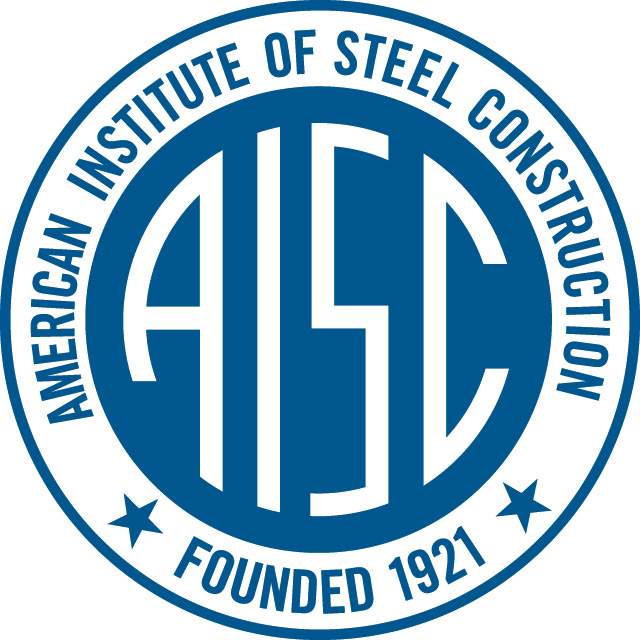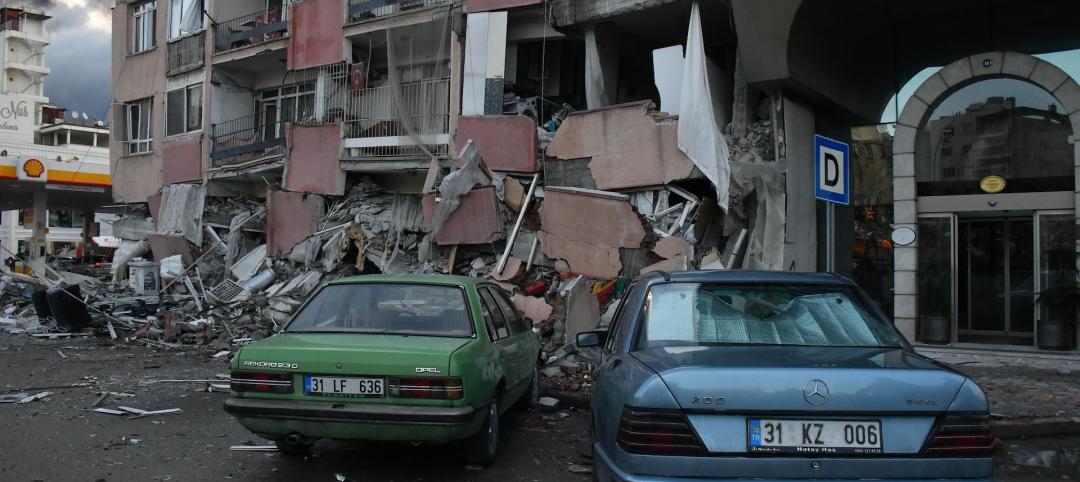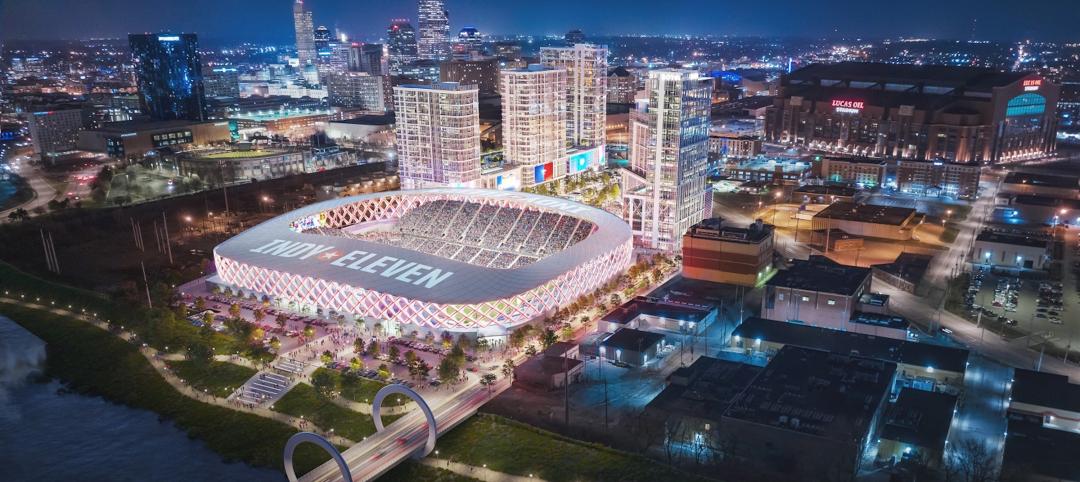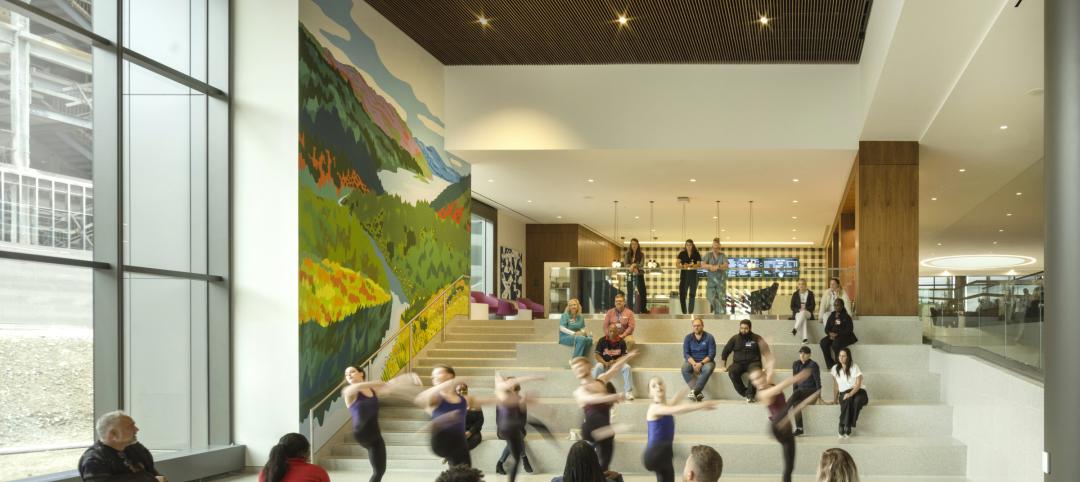For the second consecutive year, NASCC: The Steel Conference provides a glimpse into the future of technology in steel construction with the Technology in Steel Construction Conference (TSCC). This special track features nine informative sessions that focus on advanced technology use throughout the steel construction industry, from various topics on building information modeling (BIM) to interoperability.
TSCC sessions are part of the more than 100 top-notch educational sessions being offered at The Steel Conference in St. Louis, April 17-19 at America's Center Convention Complex. Admittance to all TSCC sessions is included with conference registration. To register or view an advance program, visit www.aisc.org/nascc.
Here's a look at this year's TSCC sessions for steel design and construction professionals:
T1: Leveraging Technology to Improve Project Communication (Wednesday, 3:15 p.m. — 4:15 p.m.) — How do you convey information clearly and succinctly and ensure it is understood by others? How do you know you are interpreting the information you receive correctly? This session, aimed at all roles within the structural steel industry, will discuss how to use the technology you already have, or have easily accessible, to improve communication within the project team and your own organization. Various technologies will be examined, from tools for building and reviewing BIM models and drawings, to web-based software designed to accommodate virtual meetings, to free tools to help you share files and stay mobile.
T2: IFC - Interoperability for Construction? A Practical Take for the Steel Industry (Wednesday, 4:30 p.m. — 6 p.m.) — IFC does not stand for Interoperability for Construction; but it could! It's actually an acronym for buildingSMART's Industry Foundation Classes, an industry-wide open standard that is gaining traction in the construction industry, as it offers a promise unmatched by previous standards: that a single standard can be used across various trades and professions in the industry. This session will explain why AISC adopted IFC at the core of its interoperability strategy and examine the nuances of IFC files, dispelling some myths and perceptions along the way. In addition, the session will take a look at the progress being made toward actual IFC exchanges in the structural steel industry.
T3: Risk and Model Hand-Offs (Thursday, 8 a.m. — 9:30 a.m.) — In this session, you'll learn how to address risk and model hand-offs and the challenges of working with design and construction models. The discussion will also consider the new AIA BIM Protocol Exhibit 202 that defines the Level of Detail (LOD) in models on a scale of 100 to 500. These LOD concepts will then be demonstrated with case studies on projects in three different phases: design, construction and facilities management (FM).
T4: Next Generation Approval: Using BIM for the Shop Drawing Review and Approval Process (Thursday, 10 a.m. — 11:30 a.m.) — BIM models hold tremendous potential, yet they are often underused beyond the visualization and coordination stages. This session will introduce you to three pioneering companies that are taking models to the next level by using them in the review process in concert with, or even in lieu of, traditional shop drawings. Speakers will discuss various methodologies and benefits they've experienced using model review.
T5: Bridging the Gap from Design to Fabrication (Thursday, 1:15 p.m. — 2:15 p.m.) — Do you still use traditional PDF drawings? You may be running the risk of inefficiencies and opportunities for mistakes. In the new and evolving world of BIM, more designers are creating 3D models that contain an immense amount of information that can be easily accessed by steel detailers, who have the opportunity to incorporate lean processes in their workflow -- benefiting the bottom line for the entire project team. In this session, you'll hear about the steel detailing challenges, successes and lessons learned from a major healthcare project related to the structural design model and project team coordination, and how to apply these to your own projects.
T6: The True Benefit of BIM for the Structural Engineer and the Pivotal Role They Play in the BIM Process (Thursday, 3 p.m. — 4 p.m.) — Do you typically use software packages for your own domain and find that it can sometimes be a bottleneck in the BIM process? Structural engineers and designers will often use their own BIM models for design, but, for most projects, the construction documents will be produced as drawings for the steel detailer/fabricator, who then interprets the drawings for building their own BIM models for fabrication purposes. This session will examine and discuss various topics related to improving workflow both within the structural engineering office and as it pertains to sharing models with steel detailers.
T7: What Does it Mean to Be a BIM Coordinator? (Thursday, 4:15 p.m. — 5:15 p.m.) — This session will delve into the role and requirements of a 3D/4D BIM coordinator and provide objectives from the perspectives of a steel detailer and general contractor. The purposes and goals of a BIM Contract will be reviewed, as well as the expectations of each project stakeholder. The session will also examine the different BIM platforms each party uses and the benefits of identifying discrepancies earlier in the design and detailing process.
T8: Steel Procurement in the 21st Century: Current Best Practices and Future Possibilities (Friday, 8 a.m. — 9:30 a.m.) — In today's brave new technological world, paper, faxes and basic spreadsheets still dominate the world of steel procurement. This session will offer practical ways to take advantage of the technology you already own, or have easily accessible, to improve the procurement process, which will be investigated in four primary areas: Inventory availability; Request for Quotation (RFQ); order placement; and order status/delivery. It will also discuss promising future initiatives and opportunities in this area.
T9: Laser Scanning and Steel Construction (Friday, 10 a.m. — 11:30 a.m.) — In this session you'll gain a solid foundation in using laser scanning for your projects, including how to budget and specify laser scanning work. The presentation will also provide practical examples of how laser scanning is adding value, accelerating schedules, and improving quality and safety for steel projects.
More information on this year's TSCC sessions at The Steel Conference can be found in the Advance Program (pages 29-31). For more information about the conference, visit www.aisc.org/nascc.
About the American Institute of Steel Construction
The American Institute of Steel Construction, headquartered in Chicago, is a not-for-profit technical institute and trade association established in 1921 to serve the structural steel design community and construction industry. AISC's mission is to make structural steel the material of choice by being the leader in structural steel-related technical and market-building activities, including: specification and code development, research, education, technical assistance, quality certification, standardization, and market development. AISC has a long tradition of service to the steel construction industry of providing timely and reliable information.
Related Stories
Industry Research | Mar 2, 2023
Watch: Findings from Gensler's latest workplace survey of 2,000 office workers
Gensler's Janet Pogue McLaurin discusses the findings in the firm's 2022 Workplace Survey, based on responses from more than 2,000 workers in 10 industry sectors.
AEC Innovators | Mar 2, 2023
Turner Construction extends its ESG commitment to thwarting forced labor in its supply chain
Turner Construction joins a growing AEC industry movement, inspired by the Design for Freedom initiative, to eliminate forced labor and child labor from the production and distribution of building products.
Multifamily Housing | Mar 1, 2023
Multifamily construction startup Cassette takes a different approach to modular building
Prefabricated modular design and construction have made notable inroads into such sectors as industrial, residential, hospitality and, more recently, office and healthcare. But Dafna Kaplan thinks that what’s held back the modular building industry from even greater market penetration has been suppliers’ insistence that they do everything: design, manufacture, logistics, land prep, assembly, even onsite construction. Kaplan is CEO and Founder of Cassette, a Los Angeles-based modular building startup.
Airports | Feb 28, 2023
Data visualization: $1 billion earmarked for 2023 airport construction projects
Ninety-nine airports across 47 states and two territories are set to share nearly $1 billion in funding in 2023 from the Federal Aviation Administration. The funding is aimed at help airports of all sizes meet growing air travel demand, with upgrades like larger security checkpoints and more reliable and faster baggage systems.
Seismic Design | Feb 27, 2023
Turkey earthquakes provide lessons for California
Two recent deadly earthquakes in Turkey and Syria offer lessons regarding construction practices and codes for California. Lax building standards were blamed for much of the devastation, including well over 35,000 dead and countless building collapses.
Sports and Recreational Facilities | Feb 27, 2023
New 20,000-seat soccer stadium will anchor neighborhood development in Indianapolis
A new 20,000-seat soccer stadium for United Soccer League’s Indy Eleven will be the centerpiece of a major neighborhood development in Indianapolis. The development will transform the southwest quadrant of downtown Indianapolis by adding more than 600 apartments, 205,000 sf of office space, 197,000 sf for retail space and restaurants, parking garages, a hotel, and public plazas with green space.
Libraries | Feb 26, 2023
A $17 million public library in California replaces one that was damaged in a 2010 earthquake
California’s El Centro community, about two hours east of San Diego, recently opened a new $17 million public library. With design by Ferguson Pape Baldwin Architects and engineering services by Latitude 33 Planning & Engineering, the 19,811-sf building replaces the previous library, which was built in the early 1900s, damaged by a 7.2 earthquake that struck Baja California in 2010, and demolished in 2016.
Healthcare Facilities | Feb 21, 2023
Cleveland's Glick Center hospital anchors neighborhood revitalization
The newly opened MetroHealth Glick Center in Cleveland, a replacement acute care hospital for MetroHealth, is the centerpiece of a neighborhood revitalization. The eleven-story structure is located within a ‘hospital-in-a-park’ setting that will provide a bucolic space to the community where public green space is lacking. It will connect patients, visitors, and staff to the emotional and physical benefits of nature.
Multifamily Housing | Feb 21, 2023
Multifamily housing investors favoring properties in the Sun Belt
Multifamily housing investors are gravitating toward Sun Belt markets with strong job and population growth, according to new research from Yardi Matrix. Despite a sharp second-half slowdown, last year’s nationwide $187 billion transaction volume was the second-highest annual total ever.
Multifamily Housing | Feb 21, 2023
New multifamily housing and mixed-use buildings in Portland, Ore., must be ready for electric vehicle charging
The Portland, Ore., City Council recently voted unanimously to require all new residential and mixed-use buildings to be ready for electric vehicle charging. The move amends Portland’s zoning laws to require all new multi-dwelling and mixed-use development of five or more units with onsite parking to provide electric vehicle charging infrastructure.

















